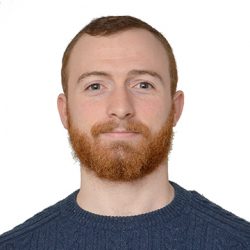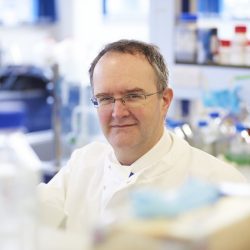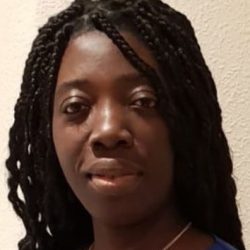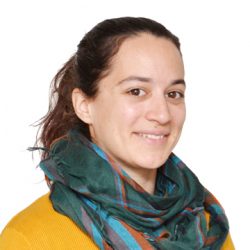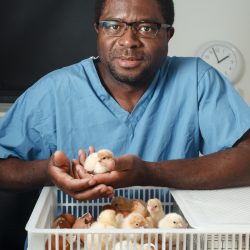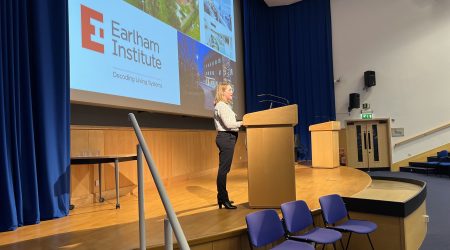Biosciences and Innovation: promoting research excellence in Africa
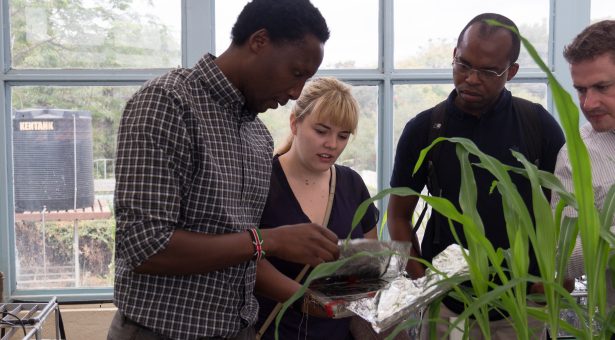
Are you interested in finding out about scientific research in Africa or ever thought about collaborating with scientists in Africa but didn’t know how to go about it?
Come and find out at the launch of the Norwich Bioscience Institutes (NBI) Africa Initiative on 28 February 2020 at the John Innes Centre. The event will be followed by a social gathering and networking opportunity.
The NBI Africa Initiative (NBIAI) is a platform promoting collaborations between the Earlham Institute, the John Innes Centre, the Quadram Institute Bioscience, the Sainsbury Laboratory and African researchers and institutions.
The launch of the NBI Africa Initiative is taking place on Friday, 28 February 2020 at the John Innes Centre Conference Centre. This event features a keynote address, talks from NBI-based scientists as well as a panel session with policy experts.
Programme
13:30 – 14:00 – Registration
14:00 – 14:10 – Welcome
14:10 – 14:45 – Keynote address, Professor Appolinaire Dijkeng, Director of the Centre for Tropical Livestock Genetics and Health – ‘Bioscience research, capacity building and partnerships opportunities to support sustainable agricultural development in Africa’
14:45 – 15:05 – Dr Pauline Essah, Senior Manager for Global Health, National Institute for Health Research – ‘The Mutual Benefit Of International Collaborations: A Focus On Africa’
15:05 – 15:25 – Professor Cathie Martin, Group Leader, John Innes Centre – ‘Gracias á la almorta: remodelling grass pea, an ancient insurance crop’
15:25 – 15:45 – Dr Cathrina Edwards, Career Track Group Leader, Quadram Bioscience – ‘Optimising the nutritional value of local crops’
15:45 – 16:10 – Tea break
16:10 – 16:30 – Professor Nick Talbot, Executive Director, The Sainsbury Laboratory – ‘Developing strategies for durable control of rice blast disease in sub-Saharan Africa’
16:30 – 17:05 – Plenary session chaired by Dr Pauline Essah, with panel members Chris Darby, Dr Maria Diaz, Professor Appolinaire Dijkeng, Jacob Scadden and Professor Cristobal Uauy
17:05 – 17:15 – Concluding remarks
17:15 – 21:00 – Evening social
Speaker biographies
Keynote – Professor Appolinaire Dijkeng
Professor Djikeng’s research interests and activities are centred on tropical livestock genetic improvement.
His administrative responsibility is to provide the overall leadership and strategic orientation of the Centre for Tropical Livestock Genetics and Health (CTLGH) with operating nodes in the UK (Edinburgh) and in Africa (Nairobi – Kenya, Addis Ababa – Ethiopia). CTLGH is a flagship livestock research and development centre with the mission to enhance the productivity, adaptability and sustainability of livestock in tropical production systems through genetic improvement.
Prior to moving to the University of Edinburgh, Professor Djikeng was at the International Livestock Research Institute (ILRI) from 2009 to 2017, where he served as Technology Manager (and Principal Scientist) and then Director of BecA (Biosciences eastern and central Africa). BecA is a regional bioscience centre for excellence focusing on biosciences research and capacity building programmes tacking key agricultural development challenges.
Professor Djikeng completed undergraduate studies (BSc and MSc) at the University of Yaoundé I (Cameroon) and received a PhD from Brunel University (UK). Professor Djikeng conducted postdoctoral research fellowship at Yale University School of Medicine (USA) and held faculty positions at Yale University School of Medicine and at the J. Craig Venter Institute (USA) from 1999 to 2009.
Dr Pauline Essah
Dr Pauline Essah is passionate about using research as a powerful tool for ensuring food security, transforming education, advancing health and reducing inequality/poverty in society.
She is currently a Senior Manager for Global Health at the UK’s National Institute for Health Research (NIHR). In this role, Pauline oversees the strategic use of Official Development Assistance funding to support sustainable partnerships between UK health researchers and their colleagues in Low- and Middle-Income Countries (LMICs) around the world. Such research collaborations are resulting in innovative and high-quality applied health research being conducted to strengthen capacity in LMICs, advance science, promote economic growth and transform people’s lives. Pauline is also an Independent Director/Board Member of the University of Suffolk – a young university in the UK that is aiming to change the lives of individuals and communities for the better. Furthermore, she is a UK Trustee for TReND (Teaching and Research in Natural Sciences for Development) in Africa – a charity that is building scientific capacity across Africa.
From 2009 to 2018, Pauline was instrumental in establishing and managing the flagship Cambridge-Africa Programme at the University of Cambridge. This programme fosters collaboration between Cambridge and African researchers and strengthens research capacity and scholarship in African institutions, by providing training and mentorship from experienced Cambridge academics. During Pauline’s tenure, Cambridge-Africa raised millions of pounds to establish long-term, mutually beneficial partnerships in 50 institutions across 18 African countries. More than 150 collaborative research projects were supported in all disciplines, in response to African priorities as determined by the African partners themselves. A Centre for Global Health Research was also established in Cambridge, with a focus on Africa. Furthermore, 118 African PhD and postdoctoral researchers were awarded fellowships, with periodic visits to Cambridge University. The very successful Cambridge-Africa model has been adopted by other UK institutions (e.g. the Africa Oxford Initiative), to enable collaboration with and support for African researchers. Pauline also served as a member of the Scientific and Steering Committee for the annual UNESCO-Merck Africa Research Summit from 2015 to 2017 and supported the establishment of Africa-focused student societies in Cambridge.
Prior to Cambridge-Africa, Pauline conducted three years of postdoctoral research in Plant Sciences at the University of Cambridge. She earned MPhil and PhD degrees in Biological Science from the University of Cambridge and a BSc Honours degree in Agriculture (crop science major) from the University of Ghana.
Dr Cathrina Edwards
Cathrina Edwards leads a Research Group within the Food, Innovation & Health programme at Quadram Institute Bioscience, Norwich.
The research group employs in vitro digestion models to study the rate, extent and site of release of nutrients from foods during gastro-intestinal transit, and undertake human studies to assess the metabolic consequences.
Current research activities are focussed on understanding the mechanisms limiting bioaccessibility of starch and protein from pulses, and working with the food industry to develop alternative processing methods to optimise the nutritional value of pulses. This work is particularly relevant to dietary prevention and management of type 2 diabetes and malnutrition, which are major global health challenges.
Professor Nick Talbot
Nick Talbot’s research is focused on the biology of plant diseases and he utilises a range of cell biology, genetics and genomics approaches in his work.
Nick is interested in understanding how fungi are able to invade intact plants using specialised infection structures called appressoria, how plant tissue is invaded, and how fungi suppress plant immunity.
His main contributions have been associated with understanding the biology of plant infection by the rice blast fungus Magnaporthe oryzae. Rice blast disease destroys up to a third of the annual global rice harvest– enough rice to feed 60 million people. It is therefore a really important economic and humanitarian problem.
Nick received his PhD in Molecular Genetics from the University of East Anglia in 1990 and worked in a link project between UEA and the John Innes Centre, funded by the Gatsby Charitable Foundation. After a period of postdoctoral research at Purdue University in the USA, he moved to the University of Exeter as a Lecturer in 1993, becoming Professor of Molecular Genetics in 1999, Head of the School of Biosciences in 2005, and Deputy Vice-Chancellor in 2010. He joined The Sainsbury Laboratory as Executive Director in 2018.
He has authored more than 160 publications. He was elected a Fellow of the Royal Society of Biology in 2010, a member of EMBO in 2013, a member of the Academia Europaea in 2014, and a Fellow of The Royal Society in 2014.
Nick has worked with colleagues from across sub-Saharan Africa to develop strategies for durable control of rice blast disease. Using an effector-guided approach, a set of resistance genes has been identified that exclude the prevailing rice blast population. These are currently being tested in field trials in the region. His principal collaborations have been in Kenya, Tanzania, and Burkina Faso, but have also involved collaborations with scientists from more than 10 countries across the continent. He has also hosted visitors and trained PhD students from Kenya, Nigeria, Uganda, and Zambia.
Dr Maria Diaz
After completing a Degree in Biochemistry and an MSc in Food Biotechnology at the University of Oviedo (Spain), Maria received a PhD in Food Biotechnology from the Dairy Products Institute (IPLA-CSIC, Spain).
Her PhD was focused on the identification and characterisation of histamine-producing bacteria isolated from traditional Spanish cheeses. Later, she got involved in a project to study the changes in microbiota and associated gut inflammation in children with non-IgE mediated cow’s milk protein allergy.
Maria is currently working in Professor Arjan Narbad’s group at the Quadram Institute, on a project funded by the Global Challenges Research Fund, to improve the safety and nutritional content of traditional African fermented foods. The group is using next generation sequencing as a tool to characterise the microbial communities of fermented products and to select beneficial bacteria that can improve them. This project is run in collaboration with several African partners (mainly from Nigeria and Ghana, but also from South Africa, Ethiopia, Kenya, Uganda, Benin and Burkina Faso).
These collaborations have led to workshops centred around the extraction of DNA from bacteria and from fermented foods (held in Ghana), and the analysis of whole genome and 16S amplicon sequencing data (held in South Africa). The Narbad group has also hosted PhD students from Nigeria and Ghana who are working on similar projects.
Jacob Scadden
Jacob undertook a placement at Pwani University in Kenya, for the first semester of the academic year 2019/20.
As part of a team, he organised and ran “Good Research Practice” workshops for undergraduate students. This involved preparing learning materials and engaging with student presenters to help them improve their public speaking and presentation skills. Topics ranged from how to cite scientific literature to preparing research posters. Additionally, Jacob ran a “Scientific Leadership” workshop for Masters students, which involved group discussions and teaching theoretical aspects of leadership, particularly within a scientific environment.
The placement culminated in the Student Science Symposium, a one-day event where students were given the opportunity to discuss their research with their peers through talks and poster presentations.
The Science Students’ Development Network in Africa (ssDNAfrica) is a student-run organisation, which facilitates peer-assisted soft skills training and networking opportunities for undergraduate students in sub-Saharan Africa, with the ultimate aim of creating an international network of science students who are empowered and equipped to fulfil the potential of their degree.

